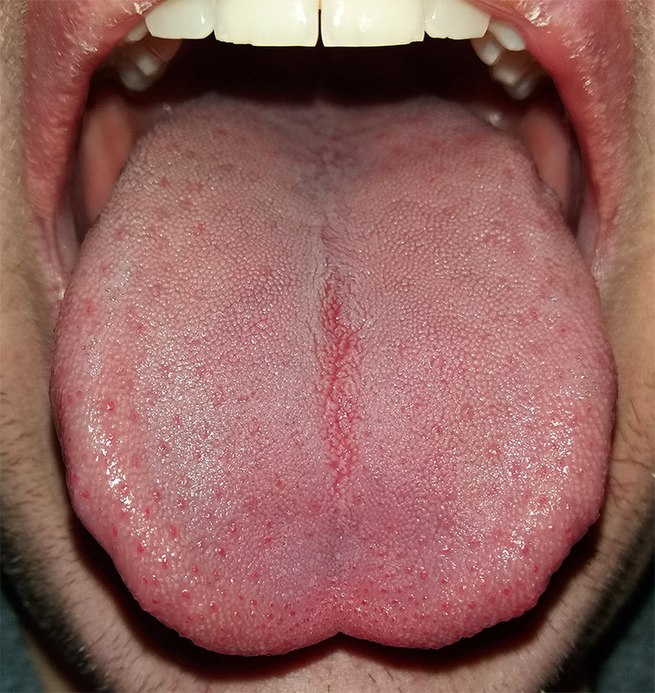Which is correct: Tounge or Tongue
How to spell Tongue?
-
Tongue
The tongue is a muscular organ in the mouth of most vertebrates that manipulates food for mastication, and is used in the act of swallowing. It is of importance in the digestive system and is the primary organ of taste in the gustatory system. The tongue’s upper surface (dorsum) is covered by taste buds housed in numerous lingual papillae. It is sensitive and kept moist by saliva, and is richly supplied with nerves and blood vessels. The tongue also serves as a natural means of cleaning the teeth. A major function of the tongue is the enabling of speech in humans and vocalization in other animals.
The human tongue is divided into two parts, an oral part at the front and a pharyngeal part at the back. The left and right sides are also separated along most of its length by a vertical section of fibrous tissue (the lingual septum) that results in a groove, the median sulcus on the tongue’s surface.
There are two groups of muscles of the tongue. The four intrinsic muscles alter the shape of the tongue and are not attached to bone. The four paired extrinsic muscles change the position of the tongue and are anchored to bone.
-
Tounge (noun)
obsolete spelling of tongue
-
Tounge (noun)
misspelling of tongue
-
Tongue (noun)
The flexible muscular organ in the mouth that is used to move food around, for tasting and that is moved into various positions to modify the flow of air from the lungs in order to produce different sounds in speech.
-
Tongue (noun)
Any similar organ, such as the lingual ribbon, or odontophore, of a mollusk; the proboscis of a moth or butterfly; or the lingua of an insect.
-
Tongue (noun)
A language.
“He was speaking in his native tongue.”
“The poem was written in her native tongue.”
-
Tongue (noun)
The power of articulate utterance; speech generally.
-
Tongue (noun)
Discourse; fluency of speech or expression.
-
Tongue (noun)
Honourable discourse; eulogy.
-
Tongue (noun)
Glossolalia.
-
Tongue (noun)
In a shoe, the flap of material that goes between the laces and the foot, so called because it resembles a tongue in the mouth.
-
Tongue (noun)
Any large or long physical protrusion on an automotive or machine part or any other part that fits into a long groove on another part.
-
Tongue (noun)
A projection, or slender appendage or fixture.
“the tongue of a buckle, or of a balance”
-
Tongue (noun)
A long, narrow strip of land, projecting from the mainland into a sea or lake.
-
Tongue (noun)
The pole of a vehicle; especially, the pole of an ox cart, to the end of which the oxen are yoked.
-
Tongue (noun)
The clapper of a bell.
-
Tongue (noun)
An individual point of flame from a fire.
-
Tongue (noun)
A small sole (type of fish).
-
Tongue (noun)
A short piece of rope spliced into the upper part of standing backstays, etc.; also, the upper main piece of a mast composed of several pieces.
-
Tongue (noun)
A reed.
-
Tongue (verb)
On a wind instrument, to articulate a note by starting the air with a tap of the tongue, as though by speaking a ‘d’ or ‘t’ sound (alveolar plosive).
“Playing wind instruments involves tonguing on the reed or mouthpiece.”
-
Tongue (verb)
To manipulate with the tongue, as in kissing or oral sex.
-
Tongue (verb)
To protrude in relatively long, narrow sections.
“a soil horizon that tongues into clay”
-
Tongue (verb)
To join by means of a tongue and groove.
“to tongue boards together”
-
Tongue (verb)
To talk; to prate.
-
Tongue (verb)
To speak; to utter.
-
Tongue (verb)
To chide; to scold.
-
Tongue (noun)
the fleshy muscular organ in the mouth of a mammal, used for tasting, licking, swallowing, and (in humans) articulating speech.
-
Tongue (noun)
the equivalent organ in other vertebrates, sometimes used (in snakes) as a scent organ or (in chameleons) for catching food.
-
Tongue (noun)
an analogous organ in insects, formed from some of the mouthparts and used in feeding.
-
Tongue (noun)
the tongue of an ox or lamb as food
“a galantine of tongue”
-
Tongue (noun)
used in reference to a person’s style or manner of speaking
“he was a redoubtable debater with a caustic tongue”
-
Tongue (noun)
a particular language
“the girls were singing in their native tongue”
-
Tongue (noun)
a strip of leather or fabric under the laces in a shoe, attached only at the front end.
-
Tongue (noun)
the pin of a buckle.
-
Tongue (noun)
the free-swinging metal piece inside a bell which is made to strike the bell to produce the sound.
-
Tongue (noun)
a long, low promontory of land.
-
Tongue (noun)
a projecting strip on a wooden board fitting into a groove on another.
-
Tongue (noun)
the vibrating reed of a musical instrument or organ pipe.
-
Tongue (noun)
a jet of flame
“a tongue of flame flashed from the gun”
-
Tongue (verb)
sound (a note) distinctly on a wind instrument by interrupting the air flow with the tongue
“Eugene has worked out the correct tonguing”
-
Tongue (verb)
lick or caress with the tongue
“the other horse tongued every part of the colt’s mane”

